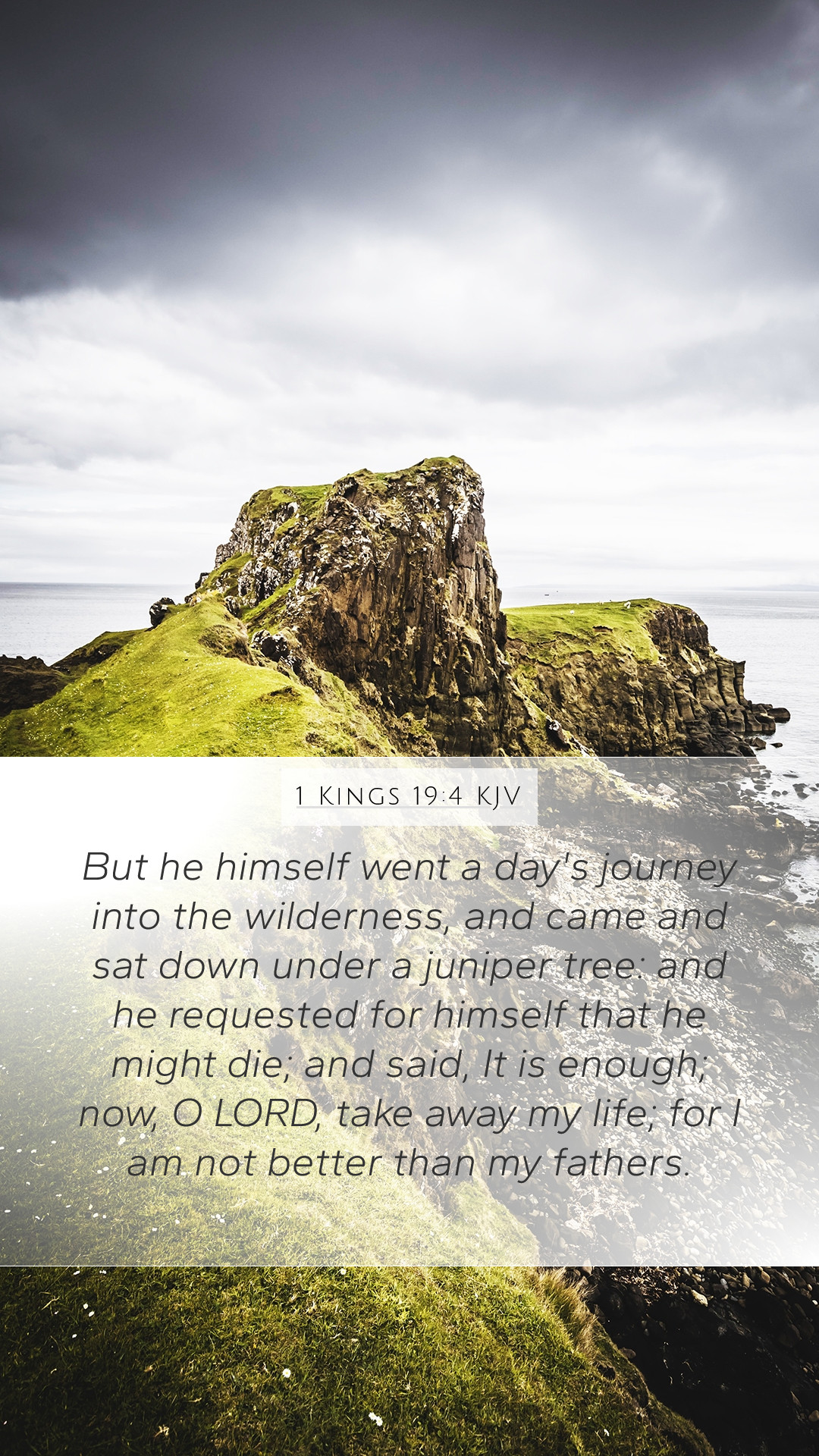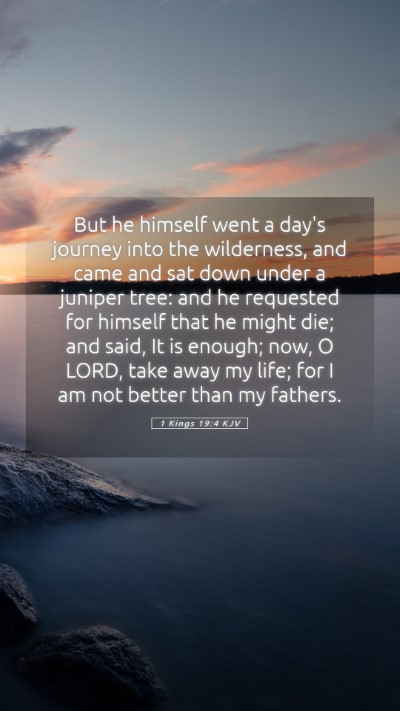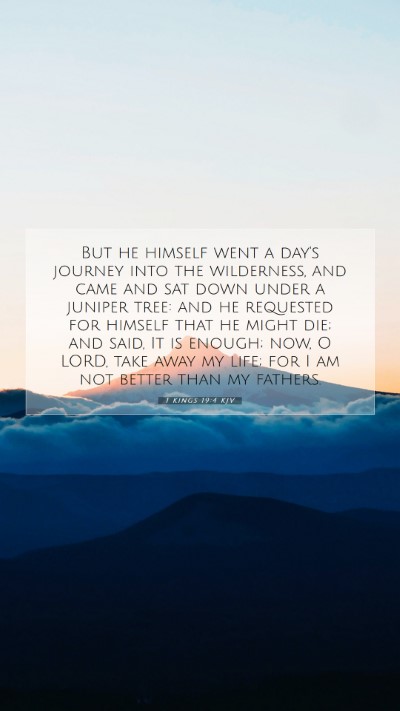Old Testament
Genesis Exodus Leviticus Numbers Deuteronomy Joshua Judges Ruth 1 Samuel 2 Samuel 1 Kings 2 Kings 1 Chronicles 2 Chronicles Ezra Nehemiah Esther Job Psalms Proverbs Ecclesiastes Song of Solomon Isaiah Jeremiah Lamentations Ezekiel Daniel Hosea Joel Amos Obadiah Jonah Micah Nahum Habakkuk Zephaniah Haggai Zechariah Malachi1 Kings 19:4 Meaning
What is the meaning of 1 Kings 19:4?
But he himself went a day's journey into the wilderness, and came and sat down under a juniper tree: and he requested for himself that he might die; and said, It is enough; now, O LORD, take away my life; for I am not better than my fathers.
1 Kings 19:4 Bible Verse Meaning
Bible Verse Meaning and Interpretation: 1 Kings 19:4
Verse Text: "But he himself went a day's journey into the wilderness, and came and sat down under a juniper tree: and he requested for himself that he might die; and said, It is enough; now, O Lord, take away my life; for I am not better than my fathers."
Overview of 1 Kings 19:4
This verse captures a profound moment in the life of the prophet Elijah, illustrating his despair after the confrontation with Jezebel and his feeling of isolation. It showcases a deep emotional state and reflects a significant turning point in Elijah's prophetic ministry.
Bible Verse Meaning
The meanings derived from 1 Kings 19:4 emphasize Elijah's vulnerability and the human tendency to feel overwhelmed in trials.
- Isolation and Despair: Elijah journeys into the wilderness alone, indicating a state of isolation that many believers may encounter during spiritual warfare.
- Desire for Death: His request to die reflects profound discouragement and the struggle against what he perceives as failure in fulfilling God's purpose.
- Recognition of Human Limit: The acknowledgment, "I am not better than my fathers," signifies humility and the understanding that, despite his prophetic calling, he shares the same human frailties as previous prophets.
Bible Verse Interpretations
Commentators have explored various angles regarding this verse:
- Matthew Henry: He explains that Elijah’s experience serves as a lesson for all servants of God, indicating that even the most faithful can experience deep valleys of despair.
- Albert Barnes: Barnes highlights that Elijah’s flight into the wilderness serves as a metaphor for spiritual retreats when faced with overwhelming pressure from adversarial forces.
- Adam Clarke: Clarke points to the poignant realism in Elijah’s plea, emphasizing that even great prophets experience moments of depression and seek solace from God in their distress.
Understanding Scripture Context
This scripture offers insight into Elijah's life not just as a prophet but also as a servant struck by fear and anxiety. Understanding the context of 1 Kings 18 is essential, where Elijah triumphs over the prophets of Baal, only to feel hunted and threatened afterward.
Application of the Verse
Believers can draw several practical applications from this verse:
- Recognizing the importance of seeking help in times of emotional turmoil.
- Understanding that isolation can fuel despair and that reaching out to others may provide relief.
- Acknowledging our limitations and returning to God for renewal and strength.
Cross References
- Job 3:11-12: Job expresses a similar desire to die during his suffering.
- Psalms 42:5: The Psalmist also questions his soul during times of distress.
- Matthew 26:38: Jesus expresses deep anguish before His crucifixion, showing that even the Son of God felt the weight of despair.
Conclusion
In summary, 1 Kings 19:4 is a poignant reminder that despair is a common human experience, and it calls on believers to turn to God in such times. This passage invites deeper reflection on emotional struggles and the vital need for divine support, offering a framework for understanding difficult Bible passages in light of God's grace and love.


